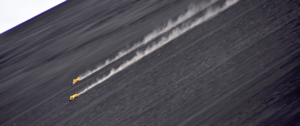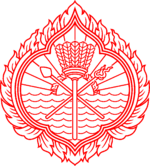Lava Racing: Difference between revisions
No edit summary |
No edit summary |
||
| Line 52: | Line 52: | ||
[[Category:INWU]] | [[Category:INWU]] | ||
[[Category:Hazala]] | [[Category:Hazala]] | ||
[[ | [[Category: Abayad]] | ||
Revision as of 20:10, 7 April 2020
 | |
| Nicknames | Volcano Racing |
|---|---|
| Earliest recorded playing | 1019 AD, Ulukau Island |
| Registered players | 2,000+ |
| Clubs | 14 |
| Characteristics | |
| Contact | No |
| Team members | 1-10 per side |
| Mixed gender | Yes |
| Type | Outdoor, racing sport |
| Equipment | Lava board, protective equipment |
| Venue | Volcano |
| Presence | |
| Country or region | |
Lava Racing is a sport in which two people/teams of anywhere from 1-10 people race down the side of a volcano.
The sport orginates from ancient Kapukans using small boards made from wood riding down volcanos as a form of worship to the gods. In the early 1920s, the sport was made an official sport of Kapuku and given it's first regulations. Official races started in the 1950s and 1960s after independence from Zhenia. Today, the sport is one of the most widely played inside of the nation of Kapuku and has made its way to the nations of Hazala and Abayad.
Lava Racing uses a Lava Board, which is a board created to glide smoothly down the sides of volcanos. Protective gear must also be worn to protect the racers from inhaling and coming into contact with the highly dangerous volcanic ash. The two teams race down the volcano, the person reaching the finish line first winning. Various risky tactics are usually used when racing to gain speed against the other team.

